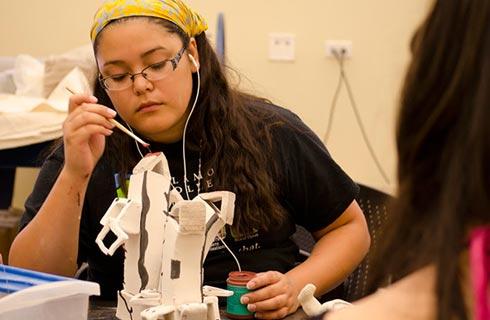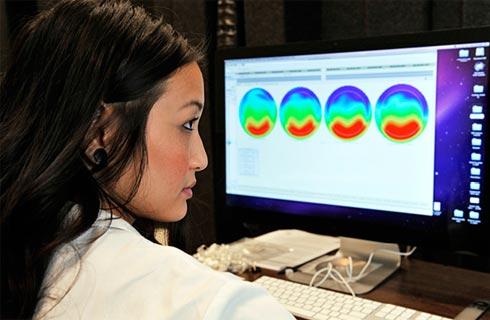商业硕士-金融
Master of Commerce - Finance

学历文凭
Masters Degree (Research)

专业院系
Otago Business School

开学时间

课程时长

课程学费

国际学生入学条件
Admission to the programme shall be subject to the approval of the Pro-Vice-Chancellor (Commerce).
Every applicant must either
- be a graduate, normally with qualifications requiring a total of at least four years of tertiary study, or
- have alternative qualifications or experience acceptable to the Pro-Vice-Chancellor (Commerce).
In considering an applicant's qualifications, regard will be had to the detail of the course of study followed to gain the qualification, as well as the applicant's performance in the programme.
English language requirements
IDP—雅思考试联合主办方

雅思考试总分
6.5
- 雅思总分:6.5
- 托福网考总分:90
- 托福笔试总分:160
- 其他语言考试:Pearson Test of English (PTE) Academic - Overall score of 58 with no communicative skills score below 50.
CRICOS代码: OO0066
申请截止日期: 请与IDP联系 以获取详细信息。
课程简介
The Master of Commerce (MCom) degree allows for the development of individual research. Starting with a sound background of coursework, students will have the opportunity to contribute to existing fields or to begin to develop new areas of research. The MCom can be pursued by a combination of papers and thesis, or by thesis only. Students who have a good Bachelor's degree (or equivalent qualification) will complete the MCom by papers and thesis (at least two years' full-time study). The first year consists of a selection of papers worth 120 points, leading to a Postgraduate Diploma in Commerce (PGDipCom). Students who have a good Honours degree or a PGDipCom (or equivalent qualification) can complete an MCom by thesis only (minimum one year).Finance focuses on investments (including portfolio theory); corporate finance (how businesses make internal financial decisions); derivatives (the study of financial securities deriving their value from other assets’ values); and international finance (finance across borders).Every person and every organisation raises and spends money. Finance examines the theory and practice of this process, with particular attention to the measurement and management of risk. It’s about deciding how money is allocated in the real world.Finance is both a science and an art – a science because it systematically analyses information and uses it to make and testpredictions; an art because these activities are not exact and there is frequently no “right” answer.The range of careers in finance is wide and varied, and well-paid. Graduates work in planning and budgeting, portfolio management, investments, securities, trading, risk management and foreign currency trading. They are employed by government departments, the education sector, banks, insurance companies, investment banks, accounting firms, stockbroking firms and many others.Because a Finance degree is relevant to economic structures worldwide, it is highly exportable. There are many job opportunities overseas, and Otago graduates compete well in international markets.
相关申请
 预科
预科 奖学金
奖学金 实习机会
实习机会 在校学习
在校学习 跨境学习
跨境学习 校园授课-线上开始
校园授课-线上开始 在线/远程学习
在线/远程学习
开学时间&学费
学费信息仅供参考,请与IDP联系以获取详细信息
| 开学时间 | 时长 | 学费 | 地点 |
|---|
学校排名

世界排名201
数据源:
泰晤士高等教育世界大学排名
关于奥塔哥大学

成立于1869年的奥塔哥大学是新西兰第一所大学,拥有丰富而杰出的历史。奥塔哥大学在研究和教学方面享誉世界,在QS世界大学排名中位列全球前1%。奥塔哥大学在商业、健康科学和人文科学等领域提供了大量而多样化的学习选项。学生可以从200多门课程中选择。该大学在就业能力、国际化、教学和研究等方面均被QS评为五星。根据高等教育委员会(TEC)的教育表现指标,奥塔哥大学在学生表现和留存率方面也被评为新西兰第一。这强调了奥塔哥为学生提供的教育质量。该机构在新西兰各地都有校区,在达尼丁、惠灵顿、奥克兰、基督城和因弗卡吉尔都有校区。奥塔哥大学的学生群体也是多元化的,达尼丁校区85%以上的学生来自城市以外,全校有3000名国际学生入学。奥塔哥大学的学生享有良好的毕业成果,95%的学生在毕业后继续深造或就业。
本校相关课程
其他相关课程

应用金融研究生文凭
 阿德莱德大学
阿德莱德大学学历文凭
Graduate Diploma
开学日期
课程费用总额


金融学学士(荣誉学位)
 澳大利亚国立大学
澳大利亚国立大学学历文凭
Bachelor Degree with Honours
开学日期
课程费用总额


财务分析硕士(投资)
 乐卓博大学
乐卓博大学泰晤士高等教育世界大学排名:267
学历文凭
Masters Degree (Coursework)
开学日期
课程费用总额


商业研究生证书(应用金融)
 昆士兰科技大学
昆士兰科技大学学历文凭
Graduate Certificate
开学日期
课程费用总额


精算研究硕士(扩展)
 悉尼新南威尔士大学
悉尼新南威尔士大学学历文凭
Ph.D.
开学日期
课程费用总额


管理硕士-金融
 墨尔本大学
墨尔本大学学历文凭
Masters Degree (Coursework)
开学日期
课程费用总额










 新西兰
新西兰





